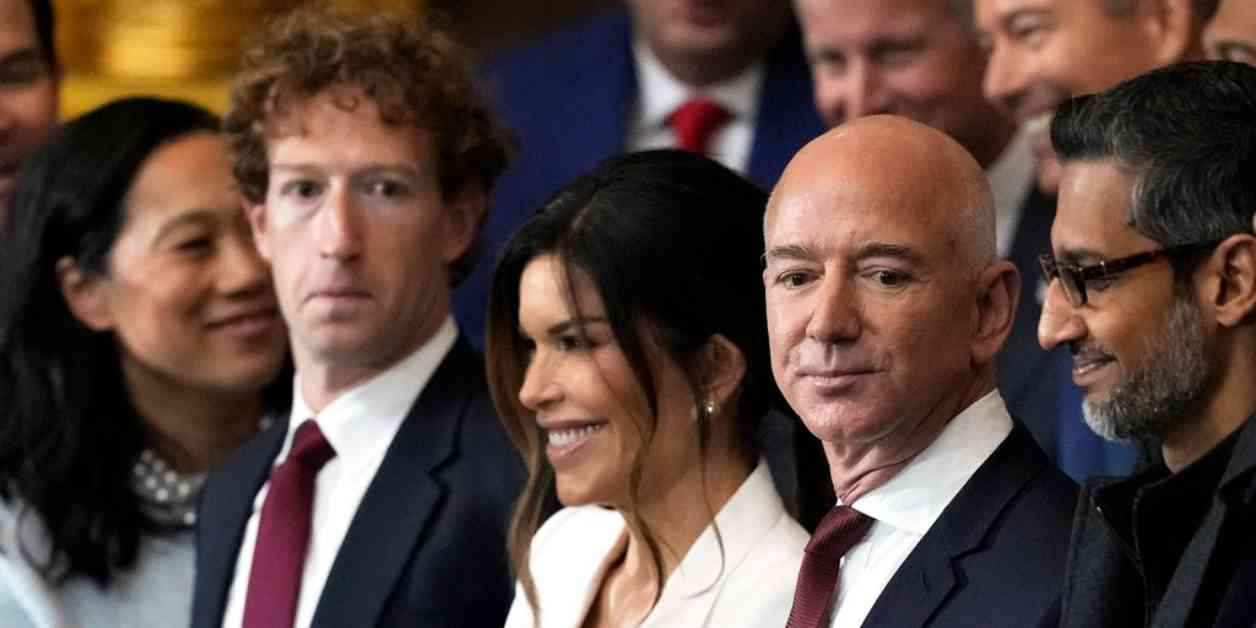When President Donald Trump took the stage at his inauguration, he was surrounded by some of the world’s wealthiest men, including tech titans like Mark Zuckerberg, Jeff Bezos, Elon Musk, and Sundar Pichai. This gathering was more than just a display of wealth and power—it was a convergence of individuals who control platforms that have become integral parts of the daily lives of nearly all Americans. As a president whose political success has been closely tied to his ability to command attention through various media channels, Trump found himself in a unique position. These tech executives hold significant influence over the algorithms and policies that could shape Trump’s political and financial future.
The intricate relationship between the Trump administration and the tech giants marks a shift in Silicon Valley’s political leanings, particularly following the upheaval caused by the Covid-19 pandemic. This shift has the potential to redefine the historically contentious interactions between conservative forces aligned with Trump and the major tech companies, which have long been embroiled in disputes over content moderation and regulatory matters.
Conservative Perspectives on the Tech Industry
Conservatives, emboldened by this newfound alliance with tech leaders, see an opportunity to advance their policy priorities in the realm of technology. Figures like Steve Bannon, a former high-ranking aide in the Trump administration, continue to express skepticism and criticism towards the tech industry despite the recent changes in tone and engagement with the Trump administration. Senator Josh Hawley of Missouri highlighted the business-minded approach of tech leaders, emphasizing their responsiveness to shifts in public sentiment as reflected in recent election outcomes.
While there is cautious optimism among conservatives regarding the evolving relationship with tech companies, concerns about monopolistic power and data privacy persist. Hawley stressed the need for robust antitrust legislation to prevent tech giants from exploiting their market dominance to control information and manipulate public discourse for their benefit.
Democrats and liberal allies, on the other hand, are grappling with the implications of this emerging alliance between Trump and the tech industry. Representative Ro Khanna of California, a district that encompasses a portion of Silicon Valley, emphasized the importance of reestablishing a connection with tech leaders to advance progressive values and foster innovation. The convergence of interests between Trump and the tech executives has raised concerns about information control, wealth distribution, and the overall functioning of government.
Implications of the Trump-Tech Partnership
The evolving dynamics between Trump and the tech leaders have sparked discussions about the potential benefits and risks associated with this partnership. While Republicans view this relationship as an opportunity to reshape content moderation policies in their favor, Democrats fear the proliferation of disinformation and the erosion of public trust in media platforms.
Tech companies like Meta, Amazon, and others have made strategic moves to align themselves with Trump, signaling a willingness to engage with his administration on favorable terms. Despite claims of neutrality in algorithmic adjustments, tech executives are keen on influencing artificial intelligence policies through their political connections and alliances.
As the Trump administration embarks on a new phase of governance, characterized by its engagement with the tech industry, both sides are navigating the complexities of this evolving relationship. The alignment of interests between Trump and tech leaders has the potential to reshape the landscape of tech policy and influence the trajectory of innovation in the coming years.
In conclusion, the convergence of political power and technological influence underscores the intricate interplay between government and industry in the digital age. As Trump seeks to leverage his ties with tech executives for political gain, the implications of this alliance extend far beyond the realm of policy and regulation. The coming days will reveal the extent to which this partnership will shape the future of technology, information dissemination, and public discourse in the United States.


